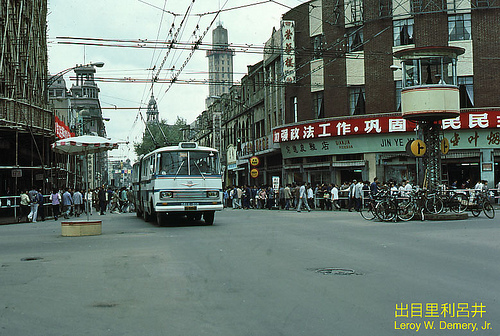New research on young Chinese shows they are modernizing but they are not Westernizing
By Kirsten Høgh Thøgersen and Nandani Lynton
Visit a Chinese city today and you would assume that China is Westernizing. Young people sit in Starbucks (SBUX) drinking lattes, texting friends, and playing online games. However, don’t be fooled. In China, 240 million young people are certainly modernizing, but they’re also holding tight to Chinese values like responsibility for the extended family, adherence to the middle way or harmony, and care of relationships. Despite surface appearances, China’s Generation Y is not becoming Western.
Generation Y (Gen Y) most commonly refers to the demographic cohort born in the 1980s to mid-’90s. Gen Yers are generally assumed to be reliant on new media and digital technology, have short attention spans, and demand entertaining and fast-paced information. Chinese refer to the post-1980 generation as clearly distinct from the post-’90 group. Accordingly we have focused on those born in the 1980s but use the global term “Gen Y.”
Understanding Gen Yers is important because they make up almost 50% of China’s workforce. As they have moved from school into jobs, organizations have noticed that this generation makes different demands and needs to be motivated in new ways. So we began to research what Gen Y values and what they expect from their careers and their lives. Our work is based on interviews and surveys of Gen Y Chinese and Westerners who have lived, studied, and/or worked abroad. These are urban youth, well-educated and with work experience. Altogether we have almost 200 data points.
A Global Culture?
While it might seem that we are experiencing global cultural convergence, let’s take a deeper look. Young people everywhere use the same technology and wear similar clothes. But some similarities are superficial. Look beneath the surface image of Asians playing the same games as Westerners, and you will still see recognizably different cultural patterns. Chinese are among the highest users of online games, for instance, but even when they play through avatars and artificial names, experts can easily identify them as Chinese by their behavior online.
Our evidence suggests these international cultural artifacts, such as video games and skinny decaf lattes, are the currency of modern culture. Like the pidgin languages developed by early traders to make communication possible across regions, the artifacts have common usage but do not deeply change either side. In the urban Chinese Generation Y, we see this clearly. While their behavior is modern, their values and patterns remain deeply Chinese.
So what are traditional Chinese values? Ancient Chinese philosophers, writers over centuries, and modern cultural experts agree on the core themes. This has been confirmed by our work over the last 15 years with groups of Chinese managers, asking them to define “Chinese-ness.” According to all these sources, traditional Chinese values focus on family, relationships, achievement, endurance, and sacrifice of one’s self for the group. They also include the ideal of the golden mean or harmony, and hierarchy as the basis for social structure and interaction.
Gen-Y Chinese have high expectations for their careers and expect to work diligently to achieve these. However, despite their popular image as the “Me Generation,” we find that they hold up traditional family values. Asked “what is really important to you,” 45% said “family,” with “friends” following at 17% and “career” at 12%. Gen Y feels keenly responsible both for their nuclear family and their grandparents, even for aunts and uncles. They feel responsible despite the fact that there is little personal communication; most say they cannot ask about details of family history or discuss personal subjects with their elders.
We also asked young Chinese to choose one wish that would make their life happier. Surprisingly, 82% chose to do something for their parents, most commonly to provide them an easy life.
http://www.businessweek.com/globalbiz/content/jan2010/gb20100125_065225.htm
